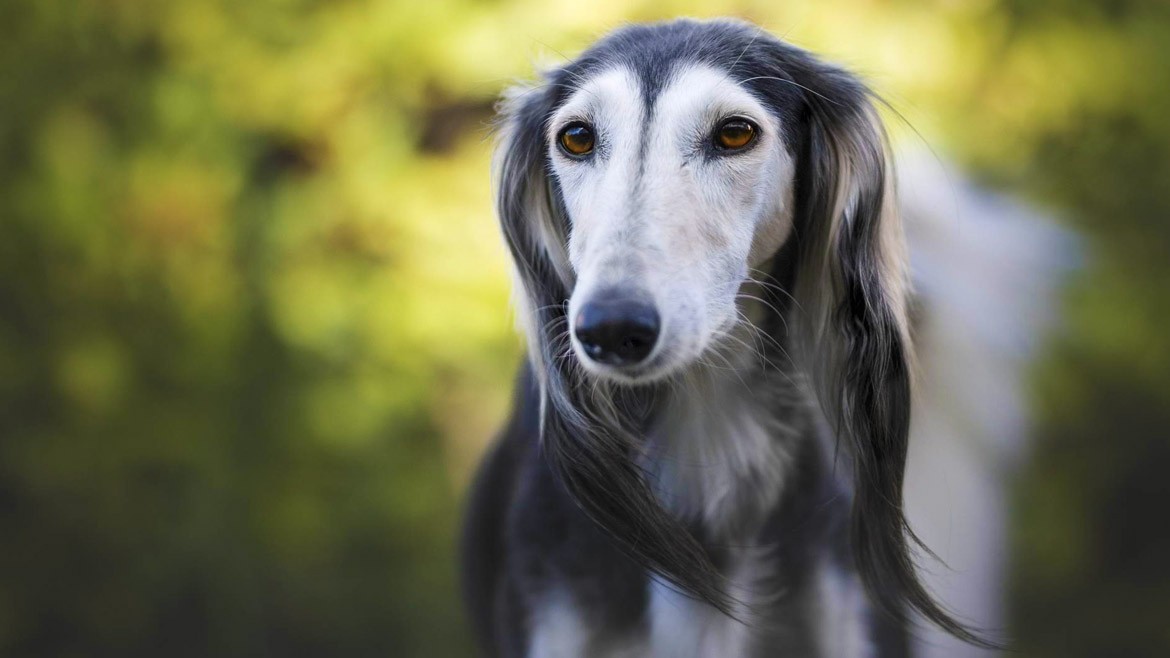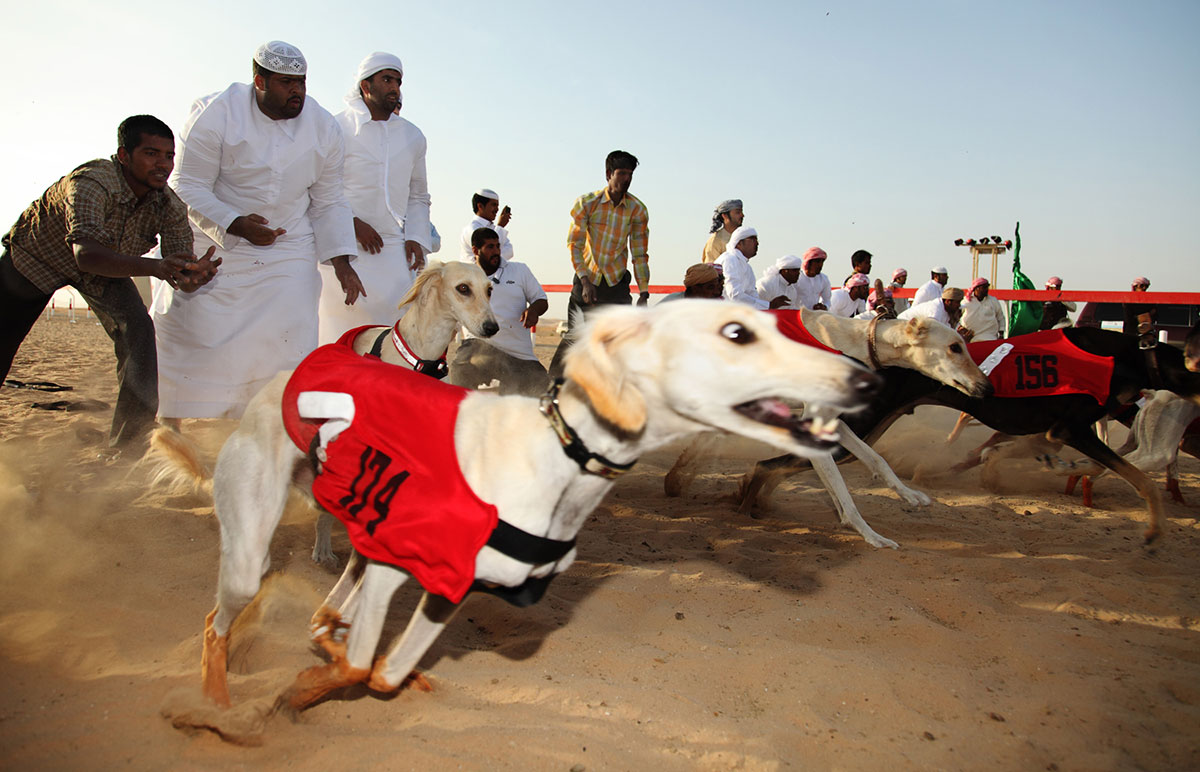
Considered to be one of the world’s oldest breeds, they are valued in many countries of the Arabian Gulf, including the United Arab Emirates, where the desert traditions of hunting, training and breeding Salukis are still in custom among the locals.
The name of the breed comes either from the city of Saluk in the Gadramaut region in Yemen, where the dog may have been domesticated for the first time, or from the ‘Bani Saluk’ tribe in Yemen, which was possibly the first tribe to domesticate it.
Since being domesticated over five centuries years ago, the Saluki dog has been the man’s desert companion throughout the vast sand dunes of the Arabian Peninsula. The speed, intelligence and loyalty of this breed made Saluki a favorite among local bedouin tribes. Since then, they started using these dogs for everyday hunting and protection, along with other purposes. Not only that, the significance of Saluki grew in time to the point of becoming Ancient Egypt’s Pharaoh’s faithful pet and an eternal companion. Historians have discovered images of Salukis in Egyptian tombs dating back to 2100 B.C.E., and many of them have been found mummified in these tombs along with the Pharaohs themselves.

Over time, these great animals traveled throughout the Middle East with nomadic tribes as skillful hunters. They were generally used in packs, following signals from other useful pets of local people – falcons, who would lead them to their prey. Often falcons would wound the prey, which will then hide in the bushes, tall grass or other natural shelters. Falcons would point the location of its prey to the Salukis, which will then finish the job by catching the weakened animal.
The first Salukis may have been taken to Europe by soldiers returning from the Crusades, as well as via Muslim Spain more than 1,000 years ago, possibly evolving into the modern greyhound.
The speed and endurance of Saluki dogs make them excellent hunting dogs and racing animals. They can reach speeds of up to 75 kilometers per hour, and can keep up these speeds over long distances – a useful trait while hunting in the desert dunes. There are two types of Arabian Saluki hunting dogs: Al Hoss and Aryash. Al Hoss dogs have fair hair all over the body, while Aryash dogs have thick hair.
Dog races practiced on the Arabian Peninsula for hundreds of years continue today, with the enormous speed of a dog that creates exciting entertainment. Races are held during heritage festivals and other sporting and club events.
In the United Arab Emirates, Saluki dogs are considered a national treasure. Founded in 2001 in Abu Dhabi, the Arabian Saluki Centre provides resources for Saluki owners, including medical care, training, breeding, registration and boarding. The center organizes the annual Saluki Arabian Beauty Contest, a dog show that differs from Western contests in that it focuses not on the appearance, but on the dog’s character, its intelligence and skills in areas such as hunting and guarding.




The UAE’s rich history is rooted in trade and tied to Islam. Its unique location between Europe and the Far East became the crucial factor in it's growth into the world's largest trading hubs. Throughout the ages, these lands had attracted merchants from India and China, and were prized by Europeans, in particular the Portuguese, the Dutch and the British.
After the discovery of oil and the formation of the Emirates, the wise rulers began the rapid development of the country's economy, shaping it into what it is today. Though small in size, the UAE quickly became an important player in regional and international affairs.
Although it's growth and development, UAE heritage have not been forgotten - on the contrary, is still well-respected among the nationals. History and culture of local people can be felt in the legendary hospitality of local hotels, architecture of modern skyscrapers and openness and kindness in living among the multinational community.
Here you can read various articles about UAE heritage, history and culture, and better understand, why this country's development became such a success throughout the years.